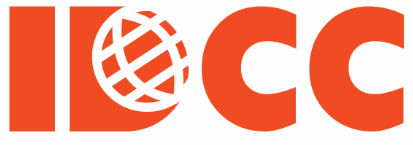Australia’s new International Development Policy signals important shift towards locally-led development
IDCC MEDIA RELEASE FOLLOWING THE PUBLICATION OF AUSTRALIAS INTERNATIONAL DEVELOPMENT POLICY, AUGUST 2023
Today the Australian Government has released its new international development policy, “Australia’s International Development Policy: For a peaceful, stable and prosperous Indo- Pacific”. The Policy sets out a long-term vision, values and principles for how Australia will be a genuine, reliable development partner in our region, putting the needs, priorities and aspirations of our partners out front. Reducing climate change, increasing locally-led development, improving social inclusion and in particular gender equality and disability equity, and strengthening the participation of First Nations Australians in international development are welcome commitments. The Policy also restates Australia’s commitment to play its part in achieving the world’s collective international development ambition for poverty reduction, as stated in the 2030 Agenda, and makes clear commitments to strengthen DFAT’s development capabilities.
The IDCC strongly supports this agenda for change, and our members are ready to work with the Government to deliver it.
Joanne Choe, Chair of the IDCC Board, said:
“This new Policy is a clear statement by Australia that it is in our national interest to support the countries in our region to tackle poverty, climate change, and inequality – and we need to do this as a genuine partner, that acts with respect and humility, and comes behind local leadership.
IDCC members work on the front lines of international development, and they are uniquely positioned to influence and promote best practice in Australian-funded international development programmes and policy. Of particular importance to the IDCC is recognition in the Policy of the critical role our members play in translating policy commitments on locally-led development into programs that are designed and delivered in new ways that place local leadership, capabilities and knowledge at the forefront.”
The IDCC welcomes the introduction of a new target for programs over $3million to achieve a climate change objective, signalling the central importance of addressing climate change throughout the bilateral program. The IDCC has previously commended Government policy commitments on gender equality and continues to look forward to engaging on the new strategies that have been announced for Gender Equality, Disability Inclusion, and LGBTQIA+ human rights.
The IDCC is pleased to see the commitment to long-term multi-year country planning and review, with timeframes fitted to country contexts.
IDCC CEO Jane Haycock said:
“We look forward to clearer signals on which programs the government intends to deliver in each country and when, so that our members can plan ahead, marshalling the capabilities required for the excellence we all seek.
The IDCC welcomes the Policy’s commitments to greater transparency, public accountability, evaluation and development research. The establishment of an online portal providing access to key financial and performance data and documentation is a positive step.”
The IDCC welcomes the articulation of DFAT’s governance arrangements for the development program and the emphasis upon the much needed strengthening of DFAT’s development capabilities, including for locally engaged staff. The appointment of Senior Responsible Officers at overseas posts to oversee delivery is a promising change. We look forward to learning more about where and how many of these roles will be established and how their accountabilities and responsibilities will operate in practice.
Ends
Enquiries to Jane Haycock, CEO IDCC, jane.haycock@idcc.org.au
The International Development Contractors Community (IDCC) is the peak body representing and advancing the interests of international development consultants and contractors working with the Australian Aid program. We are an inclusive community of international development professionals working to contribute to positive development outcomes. Our members include individual consultants, and small, medium, and large companies who are engaged by DFAT to deliver Australia’s development program.
